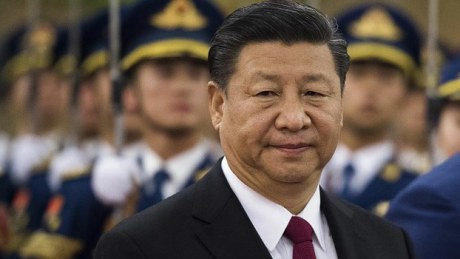Miles Harkin questions if The West is contributing enough towards fighting the genocide of China’s Muslim minority.
In 2016, allegations surfaced of “reeducation camps” being used to detain and program the Uyghur Muslim population in the Xinjiang reigion of China.
While initial reports were vague and unsubstantiated, more comprehensive evidence has come to light, showing state sanctioned incarceration, indoctrination, and torture, on an unprecedented scale. Much of this has been corroborated by detainees of the camp, and the findings have been brought to light by trusted institutions, such as the Australian Strategic Policy Institute (ASPI). So what is being done, and is it enough?
The Uyghur people are a minority group of predominantly Sunni Muslims, who now settle in Xinjiang. Prior to the creation of the People’s Republic of China (PRC), the Uyghurs inhabited their own republic, which was annexed by the newly formed PRC, turning the area into a prefecture.
Under the guidance of the newly appointed Chen Quango, Xinjiang has descended into a police state. 90,000 new PRC police officers have been recruited in the past 5 years alone, and over 7000 checkpoints exist across the province. But the most flagrant action taken has been the introduction of re-education camps.
The facilities, referred to officially as “Vocational Education and Training Centres”, have the stated purpose of counter-terrorism through “re-education” – a bold assertion – as individuals are detained without trial or charges. The PRC claims that such facilities are simply “schools”, but evidence from videos and detainees paints a different picture.
Barbed wire and electrified fences surround them, with guard towers dotted along the perimeter. Security cameras survey every corner, and testimony from former detainees produces harrowing evidence, suggesting that propaganda and torture were part of the daily regimen.
Inmates have reported being forced to eat pork and consume alcohol in an attempt to break their faith, and those who refuse are electrocuted into submission. One detainee even claims that “white foam came out of my mouth” when subjected to this.
Even more shocking than the conditions is the scale on which this cultural extermination is being orchestrated. While those targeted and detained are predominantly Uyghur, other Muslim ethnic groups and Christians are also subjected to such re-education.
Last year, the ASPI produced authoritative evidence confirming the existence and location of at least 28 camps in the province, by comparing satellite data with propaganda videos shot inside the facilities.
The United Nations (UN) also have claimed that the number of Uyghurs detained exceeds one million. The evidence provided has led to allegations that the PRC are attempting to purge an entire culture. Something must be done – but the global response has failed.
Initially, the PRC’s official policy regarding the internment facilities was to deny their existence. This changed last year when the PRC admitted their existence, but declared them legal under Chinese law. If the above evidence stands, the normalising of such a brutal campaign through claims to legal legitimacy is shocking.
This statement has allowed countries to make a clear stance, but the international response has been weak. In July 2018, 22 countries including the United Kingdom signed an open letter to the United Nations Human Rights Council, imploring the PRC to close the facilities. Staggeringly, 38 countries signed a counter letter praising China’s actions. The PRC holds considerable sway as a permanent member of the Security Council, further compounding the impotency of the UN and the global community.
After securing a £500m trade deal with China earlier this year, is the UK likely to oppose the PRC any further?
During the last few weeks the United States has acted against the PRC, passing an act authorising it’s government to monitor the situation, and imposing visa restrictions – neither of which will affect the PRC in their ability to destroy an entire ethnic group, Xinjiang Uyghur Muqam, a UNESCO recognised culture.
Many genocides have occurred in recent history, Syria, Bosnia, Rwanda, Cambodia and Armenia to name but a few, and the world failed to take decisive action before it was too late.
President Trump has been in the spotlight of worldwide political discourse during the last few years, but despite the continued global fascination in his presidency, perhaps it is time for the international community to shift eyes onto the People’s Republic of China, and take a greater role at holding them truly accountable for their actions against the Uyghur.
Image credit: Jane Wittoeck

